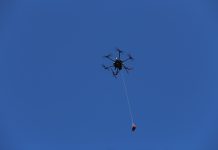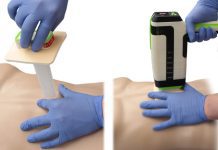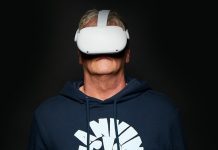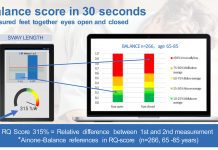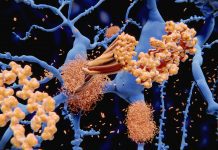Research & Innovation Related News
ARC launch the UK’s largest study of autism spectrum disorder
The University of Cambridge’s Autism Research Centre (ARC) have launched Spectrum 10K, the most extensive UK study to date of autism spectrum disorder, a...
AI algorithm could help diagnose autism in children earlier
Scientists have developed an Artificial Intelligence (AI) algorithm which they hope could aid in the early detection of autism spectrum disorder.
A team from the...
‘Smart’ shirt developed to monitor heart metrics using nanotube fibres
Researchers have developed ‘smart clothing’ which is able to monitor heartrate and take a continual electrocardiogram (EKG) of the wearer.
A team of engineers from...
Drones could increase survival chances for cardiac arrest patients, study suggests
In a first-of-its-kind pilot project, drones have proved successful in delivering defibrillators to cardiac emergencies.
The study, carried out by Karolinska Institutet in Sweden, found...
Mobiles and smartwatches can disrupt pacemakers and defibrillators
Some models of smartphones and smartwatches can interfere with the workings of pacemakers and defibrillators, new research has found.
A study by investigators affiliated with...
Device to rapidly treat stab wounds wins UK James Dyson Award
An innovative medical device to stem bleeding from stab wounds has been awarded the James Dyson Award 2021 for the UK.
The REACT device was...
Virtual reality training launched for COVID-19 labs to tackle skills shortage
A new virtual reality training programme has been introduced for COVID-19 laboratories in the hope of meeting a mass skills shortage.
Educational technology innovator CREDERSI...
Prototype breathing device created for COVID-19 patients in poor countries
Experts have developed a low-cost and easy-to-use prototype breathing device, designed specifically for poorer-resourced healthcare settings.
Created in response to the surge of COVID-19 cases...
AI blood testing technology developed to detect lung cancers
Researchers have developed an artificial intelligence (AI) blood test technology to detect lung cancers with high accuracy.
A research team from Johns Hopkins Kimmel Cancer...
Using sensor technology and the Romberg test to detect elderly fall risk
The experts from Ainone discuss how the Romberg test and sensor technology can help to reduce fall risk in the elderly population.
Fall risk is...
3D-bioprinted active tumour could transform cancer research
Scientists have used 3D printing biotechnology to create a complex model of a glioblastoma tumour.
Researchers from Tel Aviv University in Israel have used 3D...
Foetal membranes repair themselves after injury, researchers demonstrate
New evidence that foetal membranes have the ability to heal themselves following injury could help to reduce the risk of birth complications.
Led by Queen...
Poor diet and lack of exercise could increase dementia risk
An unhealthy diet and lifestyle could heighten the risk of cognitive decline and diseases such as dementia, new research has suggested.
In a study led...
AI-based eye test could help prevent severe vision loss
A new artificial intelligence (AI)-based eye test can predict a condition that may develop into blindness, a recent study has determined.
Researchers from Imperial College...
Night shift work linked to increased risk of heart problems
A recent study has suggested that working night shifts is associated with an increased risk of developing heart problems.
According to research published in the...
Digital transformation in social care could bring £127m in improvements
A drive to increase the use of digital technology in social care in England is expected to lead to £127m worth of benefits, NHS...
New AI technology can detect dementia in early stages
New artificial intelligence (AI) tools that can detect dementia before symptoms appear could aid in preventing the disease, researchers say.
A team led by Professor...
AI technology could prevent thousands of diabetes-related limb amputations
Using artificial intelligence (AI) technology for data analysis could prevent thousands of diabetic patients from having to undergo limb amputations, new research has demonstrated.
A...
Interactive VR system could improve MRI experience for anxious patients
Researchers have developed a virtual reality (VR) system designed to help ease anxieties during MRI scans.
The interactive VR technology has been created by researchers...
Researchers develop innovative wound dressings based on human skin
Customised and specialist wound dressings with skin-like properties are being developed as part of a collaborative research project.
In a joint venture by Skinomics GmbH...





